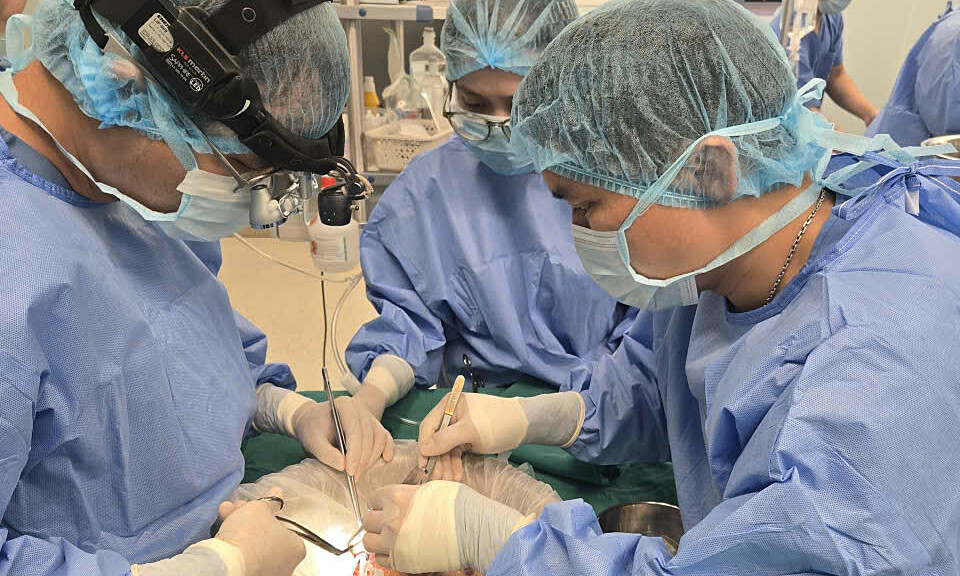On 24/8, Colonel Ngo Vi Hai, Head of the Thoracic Surgery Department at the 108 Military Central Hospital, reported that the patient, who has type 2 diabetes, was diagnosed with dilated cardiomyopathy and end-stage heart failure. He had experienced multiple ventricular fibrillation episodes, requiring the implantation of a defibrillator, and faced a high risk of death.
"The patient was absolutely indicated for a heart transplant," Dr. Hai said, adding that the patient had been on medication and machines for a long time, waiting for a donor heart.
On the afternoon of 20/8, the hospital received information from the National Organ Transplant Coordination Center about a heart donation at Xanh Pon General Hospital. The donor was a 33-year-old man diagnosed as brain-dead due to a traumatic brain injury. An ambulance carrying the donated heart, escorted by traffic police, arrived at 108 Hospital to give the patient a new lease on life.
Thanks to thorough preparation, the transplant was successful, with the first heartbeat in the patient's chest recorded on the afternoon of 21/8. Post-transplant, the patient received specialized care.
The man is now conscious, breathing well on his own, and hemodynamically stable without the need for heart or vascular support medication. An echocardiogram confirmed the good morphology and contractile function of the transplanted heart.
 |
Doctors performing the heart transplant. Photo: *Hospital provided* |
This is the 5th heart transplant performed at 108 Hospital. All previous transplants have been successful, with patients returning to their normal lives and work. The hospital has a comprehensive heart failure management program. Patients with end-stage heart failure who are indicated for heart transplants or left ventricular assist devices (LVADs) are promptly registered on the waiting list.
"This synchronized organization is the premise for the rapid and sustainable development of the LVAD and heart transplant program from brain-dead donors at the hospital," said Senior Colonel Ngo Tuan Anh, Head of the Cardiovascular Surgery Department.
Organ transplantation is the last resort for people with life-threatening conditions caused by irreversible organ failure, such as chronic kidney, liver, heart, or bone marrow failure, and corneal damage.
After 33 years of organ transplantation and 15 years of organ retrieval from brain-dead donors, hospitals nationwide have performed over 9,000 transplants, including over 90 successful heart transplants. Currently, about 4,000 people are on the waiting list, mainly for kidney and liver transplants.
Le Nga












